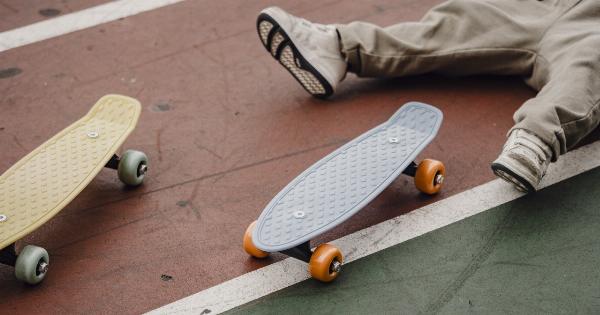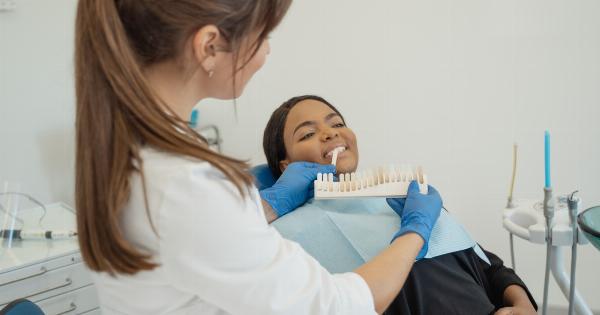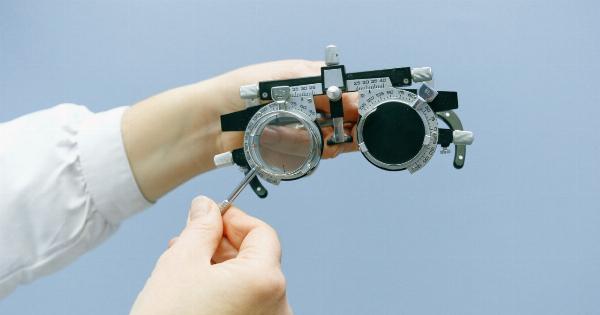Hemorrhoids, also known as piles, are swollen veins in the anal and rectal areas that can cause discomfort, itching, and bleeding.
The summer months can be particularly challenging for people with hemorrhoids due to the heat and humidity, which can exacerbate the symptoms. Fortunately, there are several ways to ease the discomfort and treat hemorrhoids during the summer months.
1. Stay Hydrated
Drinking plenty of water can help soften your stool and make it easier to pass. This can reduce the strain on your hemorrhoids and prevent them from getting worse. Aim for at least eight glasses of water a day.
You may also want to limit your intake of caffeine and alcohol, as they can dehydrate you and make your stools harder to pass.
2. Eat a High-Fiber Diet
Fiber can help bulk up your stool and make it easier to pass. This can reduce the strain on your hemorrhoids and prevent constipation. Good sources of fiber include fruits, vegetables, whole grains, and legumes. Aim to get at least 25 grams of fiber a day.
If you have trouble getting enough fiber from your diet, consider taking a fiber supplement.
3. Take Warm Baths
Soaking in a warm bath can help relieve the itching, burning, and pain associated with hemorrhoids. Add Epsom salts or baking soda to the water to further reduce inflammation. Try to soak for at least 15 minutes a few times a day.
Just be sure to dry the anal area thoroughly afterward to avoid further irritation.
4. Use Ice Packs
Applying ice packs to the anal area can help reduce swelling and pain. Wrap a few ice cubes in a clean towel and place them on the affected area for 15 minutes at a time. Avoid applying ice directly to the skin, as this can cause tissue damage.
You can also try using a cold compress or a bag of frozen vegetables instead.
5. Try Over-The-Counter Remedies
There are several over-the-counter remedies available that can help ease the discomfort of hemorrhoids. These include creams, ointments, suppositories, and pads.
Look for products that contain witch hazel, hydrocortisone, or lidocaine, as these can help reduce itching and inflammation. Be sure to follow the instructions carefully and don’t use these products for more than a week at a time.
6. Exercise Regularly
Regular exercise can help improve your overall health and prevent constipation, which can aggravate hemorrhoids. Aim for at least 30 minutes of moderate exercise most days of the week. Walking, jogging, swimming, and cycling are all good options.
Just be sure to avoid high-impact exercises that can exacerbate the symptoms.
7. Wear Loose-Fitting Clothing
Tight-fitting clothing, especially around the waist and hips, can put pressure on your hemorrhoids and make the symptoms worse. Opt for loose-fitting clothing made from breathable materials like cotton or linen.
Avoid tight jeans, leggings, and spandex shorts. You may also want to wear cotton underwear instead of synthetic fabrics.
8. Use a Sitz Bath
A sitz bath is a small plastic tub that fits over the toilet bowl. It allows you to soak your anal area in warm water without having to take a full bath.
Sitz baths can help reduce inflammation, improve hygiene, and provide relief from hemorrhoid symptoms. You can purchase a sitz bath at most drugstores or online.
9. Practice Good Hygiene
Keeping the anal area clean and dry can help prevent further irritation and infection. Use unscented wipes or gentle toilet paper to clean the area after bowel movements. Avoid rubbing or wiping too hard, as this can cause further irritation.
You may also want to use a gentle moisturizer or barrier cream to protect the skin.
10. Consider Medical Treatment
If your hemorrhoids are severe or don’t respond to home remedies, you may need medical treatment.
Your doctor may recommend a minimally invasive procedure like rubber band ligation, sclerotherapy, or infrared coagulation to shrink the hemorrhoids and reduce the symptoms. In rare cases, surgery may be necessary.



























